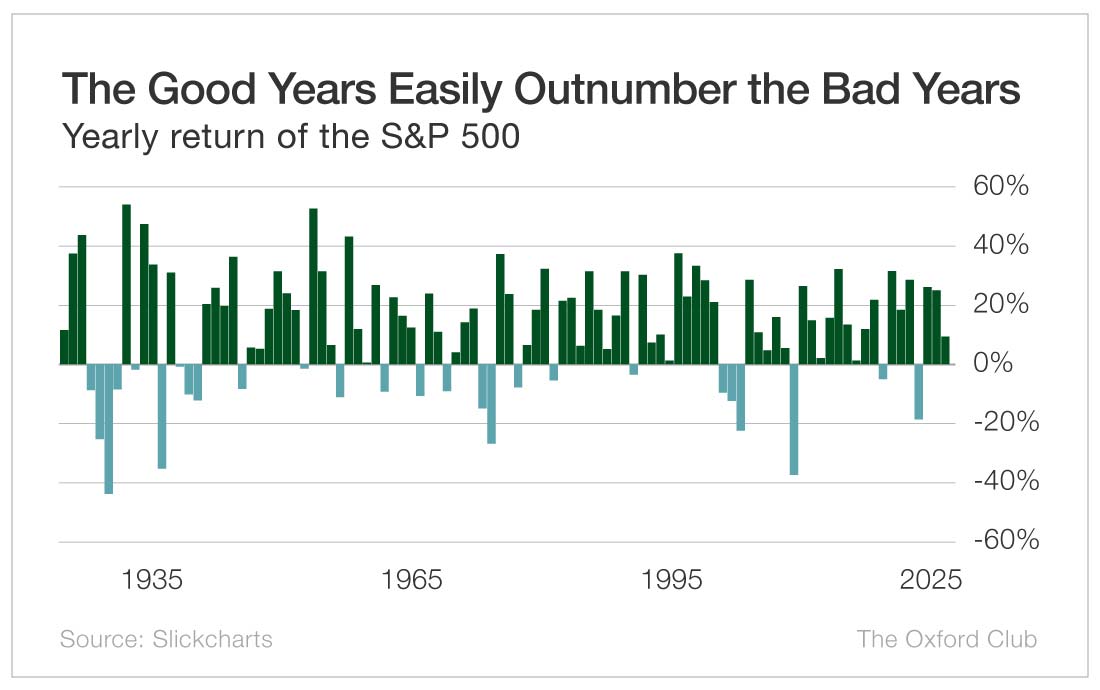Last week, Barron’s published an article on what it said were the best annuities.
I was hoping it would be a blank page, because to label any annuity “the best annuity” is like calling a bout of nausea “the best stomach flu.”
I was disappointed that Barron’s tried to shine a positive light on these garbage products. (To be fair, the article did point out some of the negatives of annuities, such as high fees.)
Annuities can pay you a guaranteed fixed amount of money every year, starting immediately or sometime in the future. If you want more upside potential, you can choose a variable annuity, whose returns are usually based on stock market performance. Variable annuities will often limit the amount of loss you can suffer, though they will typically also cap the amount you can make.
For example, you might limit your losses to 5% per year if the market goes down, but you might only make a maximum of 10% if the market goes up. That’s all well and good if the market goes up 11%. You may be willing to trade that extra 1% for additional protection. But how about when the market goes up 23%, like it did last year?
While the market produces an average annual return of about 10%, you can see that the return is typically not 10% in the up years. It’s significantly higher. In fact, when the market posts a positive return, the average is over 21%, and over the last 99 years, the market has been up nearly 75% of the time.
In other words, on average, the market is up three out of every four years, and when it’s up, it gains an average of over 21%. When it drops, it falls an average of 14%.
Of course, the market doesn’t move with that kind of consistency – three years up 21%, one year down 14%. Occasionally, the market falls hard. That’s scary, especially when you’re near or in retirement.
It’s natural to want to protect your hard-earned nest egg, and annuities companies will try to show you how to do that “without having to gamble in the Wall Street casino.”
If Caesars Palace had a game that paid out an average of 21% three out of every four bets and lost 14% on the fourth bet, people would camp out on the Strip waiting to get in.
Now imagine that’s the case, and some slick “advisor” walks down the sidewalk offering everyone a 6% fixed rate on their money – or offering 10% if the game is a winner but capping their loss at 5% if it’s a loser.
The guy wouldn’t drum up much business.
Annuities are very popular, which is not surprising. They are marketed well. Last year, more than $434 billion worth of annuities were sold, mostly because investors are worried about the stock market “casino.”
Sure, markets tank from time to time. Nasty bear markets do occur – though the average bear market lasts less than 10 months. If you can’t stomach a drop in the market, you should be in safer assets like cash or bonds.
What you shouldn’t be doing is giving your money to an industry that slammed on the brakes selling its products when there was a threat that those products could get them in trouble.
That’s right. In 2016, the Department of Labor passed a rule that said advisors must only sell products that were in their clients’ best interest. In the fourth quarter of that year, annuity sales dropped 16% and variable annuity sales fell 22%.
Two years later, the rule was killed. Annuity sales spiked 40% in the fourth quarter of 2018 and are now at record levels.
What does that tell you about how good these products are for the consumer?
Some people are happy with their annuities because they like the reliability that some annuities – mostly fixed annuities – provide. That’s fine. I’m not necessarily telling anyone to get rid of their annuity (they’d probably pay a huge surrender fee if they did).
But for most investors, sticking with the market and moving some money that’s needed for immediate expenses into cash or bonds is a better way to go. You won’t pay crazy fees and commissions, and you’ll have much more upside, which should more than make up for the occasional bear market.
Annuities are expensive, they’re complicated, and they underperform the market. I highly recommend that most people avoid them.


